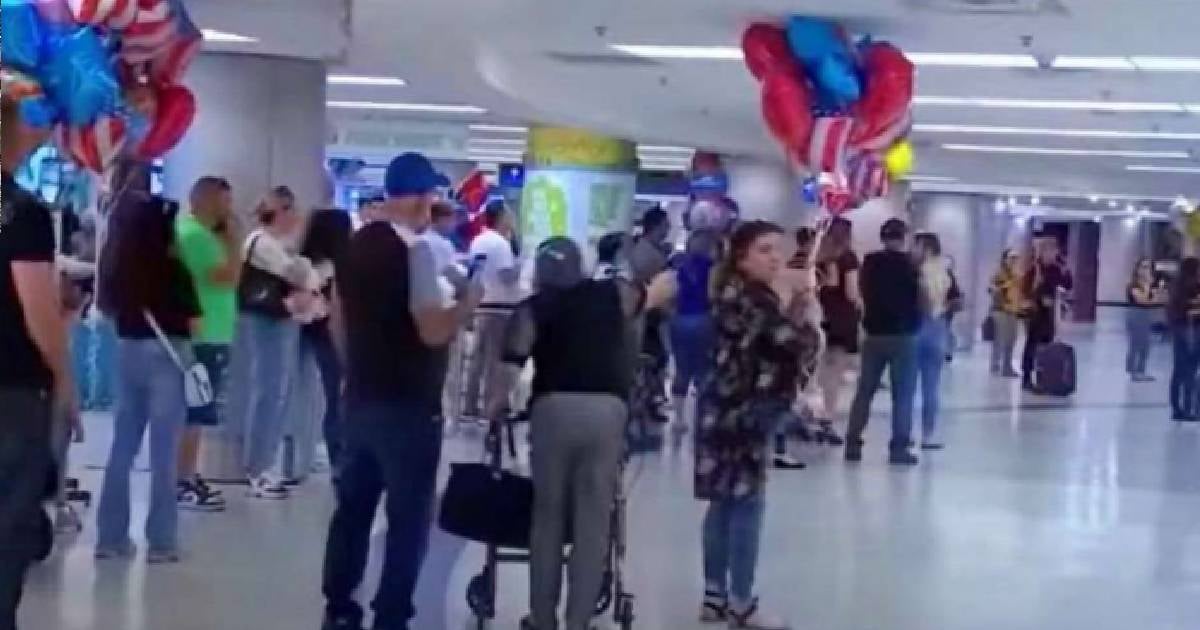Thousands of immigrants from Venezuela, Cuba, Haiti, and Nicaragua are experiencing a sense of relief following a recent court decision that temporarily halts the termination of the humanitarian parole program in the United States. While this ruling provides some respite, immigration law experts caution that it is a temporary measure requiring careful legal preparation and continuous monitoring.
Recently issued by a federal judge, the order blocks the government's plan to dismantle the humanitarian parole program, which has allowed hundreds of thousands of migrants to legally enter the country under specific humanitarian conditions. Immigration attorney José Guerrero in Miami described the court's decision as a "temporary relief" for those benefiting from the program.
"These individuals are not required to leave on April 24, as the court ruled that the government's decision to end the program was arbitrary; that the plaintiffs have a chance of winning the lawsuit, and that they would face irreparable harm, such as job loss, family separation, loss of status, and persecution in their home countries," Guerrero explained.
He emphasized that beneficiaries of the parole should not be lulled into a false sense of security. Instead, they should carefully assess their immigration status, seek legal counsel, and explore other avenues to legalize their stay in the country. "It's a temporary relief, a breather," he stressed.
Case-by-Case Evaluation: A Crucial Element
One of the most significant aspects of the judicial ruling is that it prevents the mass elimination of the parole program, compelling the government to review each case individually. This specific requirement is seen by attorneys as an opportunity for migrants to strengthen their status in the country through alternative means.
The expert advised migrants to hire a lawyer to determine if they qualify for another immigration benefit, such as a status adjustment. "I want to be very clear, the court's block is temporary because the government cannot revoke en masse, it must be case by case. The advice here is to consult a lawyer for an evaluation of your case to see if you qualify for another immigration benefit," he reiterated.
Beware of Fraud
The attorney warned of the dangers of engaging with fraudsters who promise quick fixes or "guaranteed" processes, which can lead to becoming a victim of fraud. He emphasized the importance of consulting with duly licensed attorneys. This not only helps avoid fraud but also ensures that cases are handled correctly, as any mistakes could result in expedited deportation.
Guidance for Parole Beneficiaries
Guerrero provided several key recommendations for migrants under humanitarian parole:
- Avoid any criminal activity: Any legal trouble can jeopardize your stay in the country.
- Trust only licensed professionals: Seek assistance exclusively from qualified attorneys.
- Explore other immigration options: Consider alternatives such as asylum, TPS, status adjustment, or family petitions.
- Stay informed: Keep track of the judicial case's progress and any government announcements.
An Ongoing Legal Battle
The temporary suspension marks a momentary victory for immigrant rights advocates, yet the legal battle is far from over. Courts will decide in the coming weeks whether the government can proceed with eliminating the parole program as proposed. Meanwhile, beneficiaries should use this time to prepare and strengthen their legal strategies.
FAQs on the Humanitarian Parole Program Ruling
What is the humanitarian parole program?
The humanitarian parole program allows migrants to enter the U.S. legally under specific humanitarian conditions, providing temporary relief to individuals in urgent situations.
Why was the program's termination halted?
A federal judge temporarily halted the program's termination, citing the government's decision as arbitrary and acknowledging potential irreparable harm to the plaintiffs.
What should parole beneficiaries do now?
Beneficiaries should assess their immigration status, seek legal advice, and explore other options to legalize their stay. Staying informed about the case's developments is crucial.
